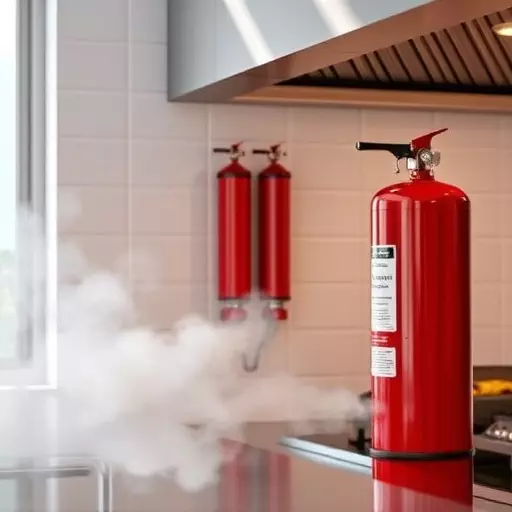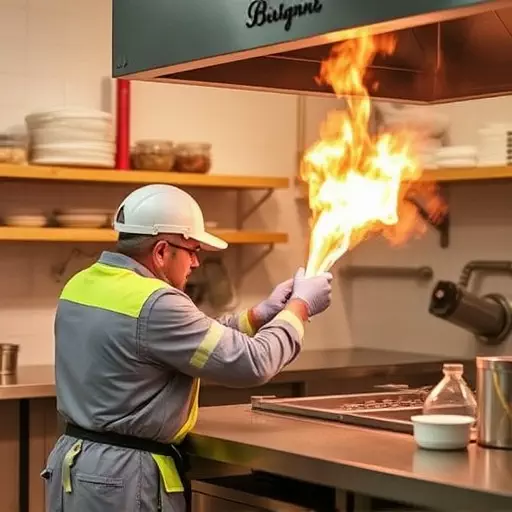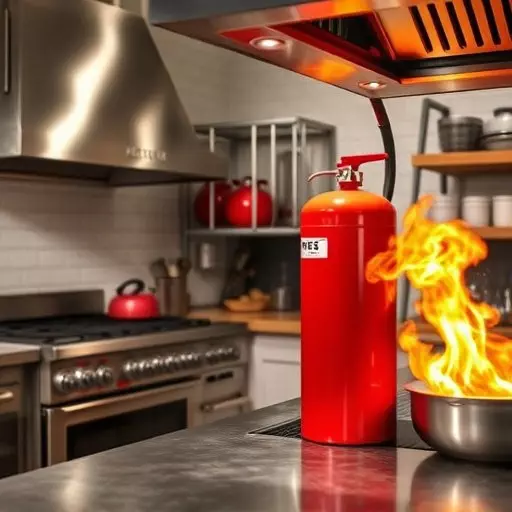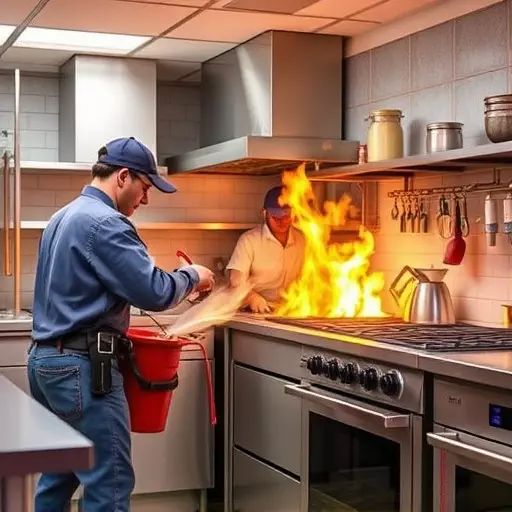Food trucks in Jacksonville, known for their vibrant culinary scene, require specialized kitchen suppression recharge services to maintain safety standards. The kitchen fire suppression recharge process involves regular testing and maintenance of CO2 or inert gas-based extinguishers to ensure they work effectively during emergencies. Understanding the importance of kitchen suppression recharge is vital for any food truck operator to protect both staff and customers from potential culinary disasters.
- Understanding Kitchen Suppression Recharge Systems in Food Trucks
- The Step-by-Step Process of Kitchen Fire Suppression Recharge
- Benefits and Why Regular Recharge is Essential for Food Truck Safety
Understanding Kitchen Suppression Recharge Systems in Food Trucks

Food trucks, known for their mobility and diverse culinary offerings, face unique challenges when it comes to safety, especially in the kitchen. This is where Kitchen Suppression Recharge Systems step in as a vital component of food truck operation. These systems are designed to protect against the devastating effects of fires in confined spaces, such as a food truck’s kitchen area.
The Kitchen suppression recharge process involves regular maintenance and testing of fire suppression equipment, ensuring its reliability when needed most. It includes inspecting and charging gas-based fire suppression systems, like those using CO2 or inert gases, which quickly extinguish fires by depriving them of oxygen. Jacksonville, with its thriving food truck scene, offers specialized kitchen suppression recharge services to keep these mobile kitchens safe and compliant with regulations. Understanding the importance of kitchen suppression recharge is key to preventing culinary disasters and ensuring the safety of both chefs and customers alike.
The Step-by-Step Process of Kitchen Fire Suppression Recharge

The process of kitchen fire suppression recharge for food trucks involves several crucial steps to ensure optimal safety and functionality. It begins with a thorough inspection, where professionals assess the current state of the system, identifying any potential issues or areas that require maintenance. This is essential in Jacksonville, where regular upkeep is vital to comply with local fire safety regulations.
Next, the recharge involves replacing or refilling the fire suppression agent within the kitchen system. This might include removing and replacing old canisters or piping, as well as topping up the agent levels to the recommended amount. After the recharge, a series of tests are conducted to verify the system’s efficiency and ensure it is ready to protect against potential kitchen fires. These steps guarantee that food trucks remain equipped with reliable fire suppression systems, enhancing both safety and regulatory compliance.
Benefits and Why Regular Recharge is Essential for Food Truck Safety

Regular kitchen suppression recharge is an essential safety measure for food trucks, ensuring the protection of both occupants and the surrounding environment. Kitchen fires can be particularly devastating due to the risk of rapid combustion and intense heat, often fueled by cooking oils and flammable gases. A well-maintained fire suppression system acts as a crucial line of defense against such disasters.
In Jacksonville, kitchen suppression recharge services play a vital role in keeping food trucks safe during operation. The recharge process involves inspecting and testing the suppression system to guarantee its optimal functioning. This includes checking the pressure levels, ensuring no leaks, and verifying the integrity of all components. By conducting regular recharges, any potential issues can be identified early on, preventing catastrophic failures and minimizing the risk of life-threatening situations.


